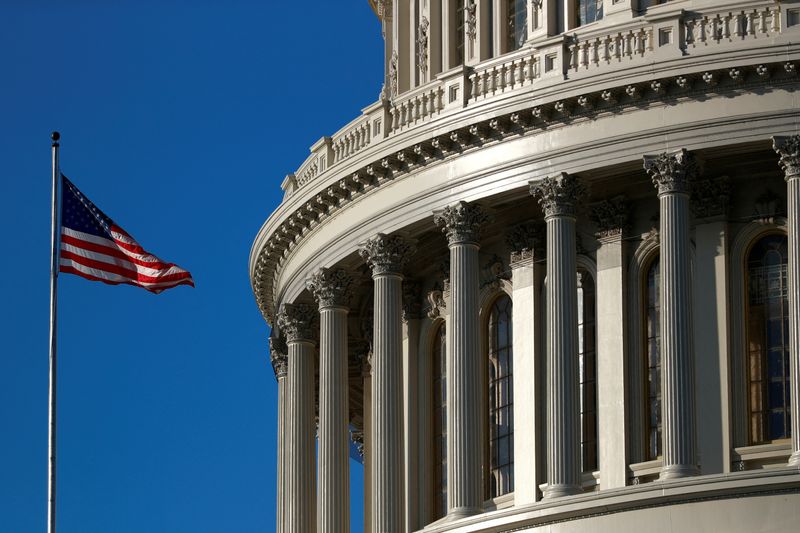U.S. FY 2022 budget deficit halves to $1.375 trln despite student loan costs
2022.10.21 10:47
[ad_1]

© Reuters. FILE PHOTO: An American flag flies outside of the U.S. Capitol dome in Washington, U.S., January 15, 2020. REUTERS/Tom Brenner
WASHINGTON (Reuters) – The U.S. government on Friday reported that its fiscal 2022 budget deficit plunged by half from a year earlier to $1.375 trillion, due to fading COVID-19 relief spending and record revenues fueled by a hot economy, but student loan forgiveness costs limited the reduction.
The U.S. Treasury said the $1.400 trillion reduction in the deficit was still the largest-ever single-year improvement in the U.S. fiscal position as receipts hit a record $4.896 trillion, up $850 billion, or 21% from fiscal 2021.
Outlays for fiscal 2022, which ended Sept. 30, fell by a record $550 billion, or 8% from last year to $6.272 trillion. But the outlays for September, the fiscal year’s final month, included the recognition of $430 billion in costs from the Biden administration’s plan to forgive student debt of up to $20,000 for former college students now earning under $125,000 a year and under $250,000 for married couples.
The move brought the September budget deficit to $430 billion, more than six times the prior-year September deficit of $65 billion. In past years, September is often a surplus month due to the payment of quarterly corporate taxes.
The Congressional Budget Office estimated that the plan would cost about $400 billion. It also includes the extension of a COVID moratorium on all student loan payments until the end of 2022, which added about $21 billion in budgetary costs.
Non-governmental budget analysts have estimated that the plan would wipe out a much-touted deficit reduction from Democrats’ recently enacted climate, healthcare and Internal Revenue Service funding bill.
Strong revenue gains during September started to slow from prior months, growing only 6% from a year earlier to $488 billion.
And the CBO is projecting that with the economy slowing further amid higher Federal Reserve interest rates, revenues will slow further and deficits will start to rise in future years. Rising interest costs also will start to consume a bigger share of the federal budget, the non-partisan fiscal referee agency predicts.
[ad_2]
Source link








